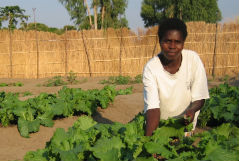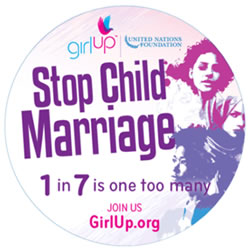I am delighted to be with you this evening to celebrate United Nations Day 2012. This day was declared by the General Assembly 67 years ago, with the intention of “making known to the peoples of the world the aims and achievements of the United Nations and to gain their support for its work.
So, I’m pleased so many are able to gather here this evening in Lilongwe to celebrate UN Day.
The United Nations development system has been resident in Malawi since independence close to half a century ago. Throughout that time we have worked to support investments in Malawi’s primary asset, its people, through poverty reduction and human development programmes, the promotion of human rights, and advancing the rule of law.
Now as a long term and close partner, we celebrate that despite challenging times:
Malawi has had a peaceful and constitutional transition of power to Africa’s second ever female President;
Her Excellency the President and her team have made decisions which are facilitating the re-engagement of Development Partners with Malawi. I was delighted to meet at length with the President earlier today.
Children under-five years of age in Malawi are now much more likely to survive with rates of mortality declining from 234 deaths children per 1000 in 1990 to 112 in 2010;
Progress is being made in the fight against HIV/AIDS with prevalence levels in the 15-49 age group declining from 17.4% in 1994 to 10.6% in 2010.
The UN development system is proud to have been able to contribute to development progress in Malawi. My discussions here make it clear that the UN family continues to make a valuable contribution, remains a trusted partner, and is active across important issues.
Of course, significant development challenges remain for the people of Malawi.
Economic circumstances right now are tough for people, and around 15 per cent of the population is specifically affected by food shortages. The President was very concerned about this when I spoke with her.
Expanding good governance remains a critical goal, including enhancing transparency and accountability, strengthening social cohesion, and improving the delivery of social services.
Preventing the spread of HIV is a continuing priority. It’s also important overall that Malawi puts in place the infrastructure, training, education, and social protection systems which are needed to generate inclusive and sustainable economic growth.
Many of these challenges are multidimensional in nature, and they require a joined up and coherent United Nations team. As a Delivering as One “self-starter” country, and through the recently completed United Nations Development Assistance Framework, the UN here is now more coherent in its approach and more focused on achieving measurable development results. Our Framework is fully aligned with the second Medium Growth and Development Strategy.
For example, to support pro-poor and equitable growth, the UN is drawing together expertise from across its agencies and programs.
UNICEF is helping to set up a system of cash transfers, while UNDP focuses on issues of good governance and works in collaboration with UNCDF on micro-finance. UNFPA focuses on population issues, while UNAIDS zeros in on the relationship between HIV, poverty reduction, and the equal rights of women.
Making the connection with women’s equality is very important. Women in Malawi continue to lag behind in all dimensions of MDG achievement. Measures which enable and empower women to participate equally in economic activity and contribute fully in the society help drive development progress.
Now we welcome UN Women to its new office in Malawi as a valuable partner in this work.
Another example of joint UN work is in food security. With an estimated 1.8 million people currently at risk, WFP, UNICEF, WHO, UNDP, FAO, UNFPA, and UNHCR are working together through the Humanitarian Country Team, with Government and NGO partners to address these immediate needs. But we are also working on strategies to build greater resilience to shocks of this kind. Extreme climate events leading to poor harvest are likely to become much more common.
These moves to a more coherent and effective One UN are being recognized and rewarded by development partners. For example, the UN Country Team has mobilized an additional $47 million through the One UN Fund in Malawi. I thank all our partners for their support. The additional un-earmarked funds have been an important impetus to joint programming and harmonization across our UN agencies, contributing further to the success of our efforts.
In addition to continued efforts to achieve the MDGs the UN country team is facilitating a national dialogue on the global development agenda beyond 2015 to ensure that Malawi’s voice and experience are heard. Malawi has been chosen as one of the fifty countries to provide specific input into the global dialogue, which we want to be inclusive and relevant.
In summary, the UN in Malawi has come a long way from its humble beginnings in a small office of nineteen people based in Zomba to now more than 550 staff, aiming to deliver over US625 million dollars of assistance to the people of Malawi under the new Action Plan for the Development Assistance Framework.
We are committed to our mission here to promote human development, human rights, peace and justice.





No comments! Be the first commenter?